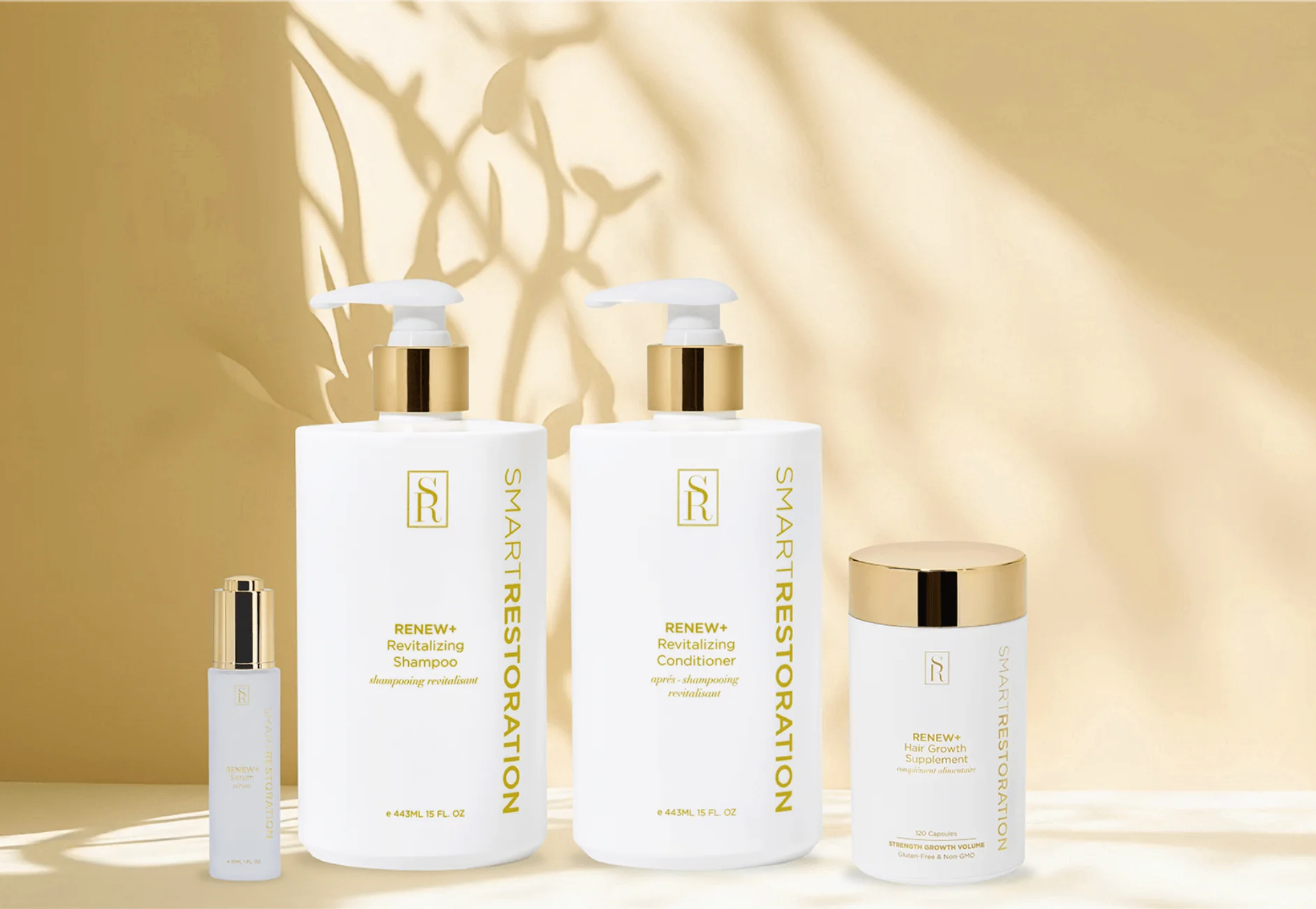In recent years, the demand for hair restoration supplements has grown significantly. People encountering hair loss or thinning hair often search for effective, non-invasive solutions. These supplements support hair health by providing essential nutrients that stimulate hair growth, strengthen follicles, and prevent further loss. This guide will explore what makes hair restoration supplements effective, the ingredients to look for, and the science behind them. We’ll also address common questions and advise on choosing the right supplements.
Understanding Hair Loss and Its Causes
Hair loss can be a distressing experience, and understanding its causes is the first step toward finding a solution. Hair loss, or alopecia, can be caused by various factors such as genetics, hormonal imbalances, poor diet, and stress. Many factors can lead to a weakened hair structure and slower regrowth. In circumstances where hair loss is due to nutrient deficiencies, hair restoration supplements can provide the vitamins and minerals necessary for keeping the body’s ability to regrow healthy hair.
How Hair Restoration Supplements Work
Hair restoration supplements supply essential nutrients that may be missing from your diet, including vitamins like biotin and vitamin D, along with minerals such as zinc and iron, which are essential for hair health. Regularly using these supplements can enhance blood circulation to the scalp, strengthen hair follicles, and shield hair from environmental damage. Additionally, supplements may help balance hormones that can contribute to hair thinning or loss, especially in androgenetic alopecia (pattern hair loss).
Key Ingredients in Hair Restoration Supplements
When choosing hair restoration supplements, paying attention to the ingredients is essential. The most common and effective components include:
- Biotin (Vitamin B7): Known to strengthen hair, skin, and nails, biotin is a popular ingredient in hair supplements. It helps metabolize fats and carbohydrates, promoting healthier and thicker hair.
- Zinc: Zinc is essential for hair tissue growth and repair and supports the proper function of oil glands around hair follicles.
- Iron: Iron deficiency is a leading cause of hair loss, especially in women. Iron promotes oxygen transport to the scalp, ensuring hair follicles receive nutrients.
- Vitamin D: Vitamin D deficiencies are linked to alopecia; maintaining healthy levels may support hair regrowth.
- Saw Palmetto: An herbal remedy often used to reduce the effects of DHT (dihydrotestosterone), which can shrink hair strands and lead to hair loss.
Benefits of Hair Restoration Supplements
Taking hair restoration supplements offers several benefits for individuals facing hair loss:
- Promotes Hair Growth: Supplements provide the building blocks for healthy hair production.
- Strengthens Hair: Consistently taking these supplements can improve hair, reducing its susceptibility to breakage.
- Improves Scalp Health: A healthy scalp is essential for promoting new hair growth, and many supplements contain ingredients that will enhance circulation and reduce inflammation.
- Reduces Shedding: By addressing nutrient deficiencies, supplements may reduce the amount of hair shedding over time.
- Non-Invasive Solution: Unlike surgical hair restoration treatments, supplements are non-invasive and easy to incorporate daily.
Who Should Consider Hair Restoration Supplements?
Hair restoration supplements suit individuals experiencing mild to moderate hair loss or thinning. They may not be as effective for those with severe alopecia, but they can still provide support when combined with other treatments. Supplements are also ideal for people who want to take a proactive approach to their hair health, especially if they have a family history of hair loss or know they are at risk due to factors like stress or hormonal imbalances.
How Long Do Hair Restoration Supplements Take to Work?
The effects of hair restoration supplements are not immediate. Hair grows in processes, and it can take several months to see noticeable changes. Users may see hair thickness and growth improvements after three to six months of consistent use. It’s essential to manage expectations and recognize that supplements are not a quick fix but a long-term investment in hair health.
Choosing the Right Hair Restoration Supplement
When selecting a hair restoration supplement, choosing one with clinically backed ingredients is essential. Look for products that are free from artificial additives and fillers. It's also recommended to consult a healthcare provider before beginning any new supplement, particularly if you have existing health conditions or are on other medications.
Conclusion
Hair restoration supplements offer a promising solution for those looking to improve hair health, reduce shedding, and promote new growth. By supplying essential nutrients like biotin, zinc, and vitamin D, these supplements address common deficiencies that contribute to hair loss. While results may take time, consistent use can improve hair thickness and strength. Before starting any supplement regimen, it’s wise to consult with a healthcare provider to ensure that the product is right for you.
Frequently Asked Questions (FAQs)
- How long should I take hair restoration supplements to see results?
Results from hair restoration supplements can take anywhere from three to six months. Hair grows in cycles, so patience is essential. Consistency is vital to seeing positive changes in hair growth and thickness.
- Are hair restoration supplements safe to use with other treatments?
Yes, in most cases, hair restoration supplements are safe to use alongside other treatments, such as topical solutions or medications for hair loss. However, it’s always best to consult a healthcare provider to ensure no interactions with other therapies.



